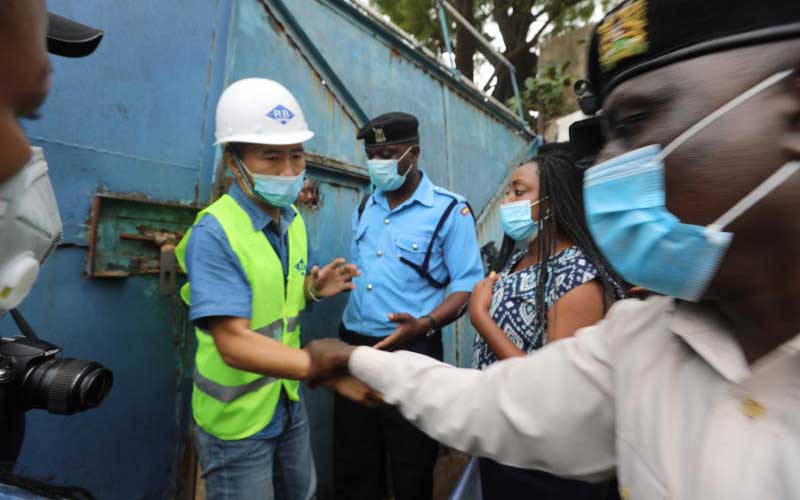×
The Standard e-Paper
Kenya’s Boldest Voice

A Chinese contractor blocks Mombasa Deputy County Commissioner Charles Monari, journalists and other government officials from leaving a project site in Likoni on August 12. [Kelvin Karani, Standard]
A recent highly circulated video showing a deputy county commissioner (DCC) in Mombasa being held hostage at the gate of a Chinese construction company site by a supervisor until he has had enough and shoves him aside, drove many Kenyans to the nostalgia of the pre-2010 Constitution days.